Clinical Psychology
Craniofacial Psychologists work within the Cleft, Craniofacial and Facial Palsy Psychology Service.
Clinical Psychologists support people who are struggling with psychological distress. In healthcare settings like ours, we focus on supporting patients and families by helping to reduce the psychological impact of medical conditions, injuries and necessary medical treatments on patients and their families.
For more about the role of Clinical Psychologists please visit:
Our team
Dr Matthew Hotton
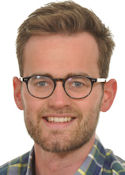
Dr Rosanna Samuel
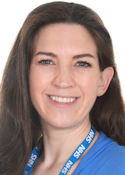
Dr Corah Lewis
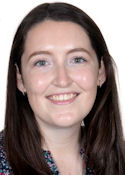
Giulia Neri
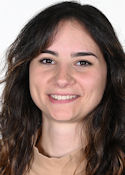
Halena Lad
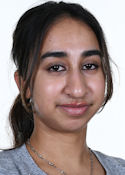
Our role
Clinical Psychologists are not medical doctors. We do not conduct physical examinations, and we do not prescribe medication.
We work as part of a multidisciplinary team with:
- Surgeons
- Geneticists
- Speech and Language Therapists (SLT)
- Nurses
- Orthoptists.
We carry out brief psychological assessments for all families with a new diagnosis of craniosynostosis, collaboratively evaluating the child and family's strengths and needs.
We conduct cognitive functioning assessments and make recommendations and referrals, liaising with other professionals who are relevant to the child's care, for example:
- Teachers
- Health Visitors
- Paediatricians
- GPs
- SENCo
- SLT.
We perform 1:1 psychological therapy with parents, young people and adults impacted by a craniofacial condition.
We also support inpatients in our hospitals.
We can help with:
- adjustment to condition
- surgery decision-making
- preparation for surgery
- coping in hospital after surgery
- bullying and teasing
- parenting a child with a health condition
- managing visible differences
- appearance distress.
We complete routine psychosocial and developmental reviews and assessments.
Our service remit is to provide psychological assessment, support and intervention for any child and/or affected family member where their difficulty is in relation to the child's craniofacial condition and/or treatment with our team.
A Clinical Psychologist from our team may be present at your child's clinic appointment, where you can ask them questions about their specialist area.
Sometimes we offer a separate appointment alongside clinic (or at another time) to provide a more in-depth consultation.
Our team routinely reviews children's emotional and social development. This may include screening, further assessment and onward referral or intervention at:
- your first and/or second appointment
- age 3 years
- age 5 years
- age 10 years.
We also offer psychological assessments and intervention at any time when a clinical need arises during the course of a patient's care in relation to their craniofacial condition.
First and/or second appointment
At your first or second appointment, a Clinical Psychologist from our team will ask to meet separately outside of the clinic room, or online for a New Family Assessment.
This is optional and helps us get to know your family better, including your support systems and any anxieties and needs you have that are related to your child’s craniofacial condition.
If we conduct a routine assessment at your appointment we will send a summary of our discussion to you afterwards that includes any recommendations and plans we have agreed with you.
What to expect
Clinics can be a chance to review how things have been for you and your child since the previous clinic, as well as discuss any coping strategies that are working well.
We may ask about your child's education or childcare, development, mood and behaviour, and any concerns you or your child may have about the appearance of a scar (if applicable) or the shape of their head.
It can also be an opportunity to raise specific psychological, social or developmental concerns. These can be explored in clinic, or we may invite you to discuss this outside the room or invite you to a separate appointment.
We also accept self-referrals from patients and their families, in addition to referrals from other colleagues working within the Craniofacial Unit or any other clinician or professional.
Oxford University Hospitals is a teaching trust, so your child might be seen by a Clinical Psychologist in Training and/or an Assistant Clinical Psychologist working under the supervision of a qualified Clinical Psychologist.
1:1 psychology appointment
We offer in-person appointments at the John Radcliffe Hospital, and appointments online or via telephone.
The type of 1:1 psychology appointment can vary from a review or an assessment (including semi-structured questions and questionnaires).
If it is the start of therapy, the Psychologist will discuss with you what to expect, and how many sessions you will have with them.
Confidentiality
Psychology appointments are confidential to the Psychology team. There are limits to confidentiality, for example, if a clinician is concerned about risk of harm or safeguarding, they can discuss a patient's care with other relevant professionals.
Psychology notes and records are confidential and are part of a shared electronic patient record (EPR) used by the Craniofacial MDT and any other staff or teams caring for you or your child within Oxford University Hospitals.
Resources
Please contact us for psychology resources such as our online 'padlet' tool for parents of children with craniosynostosis and/or young people affected by craniosynostosis.
Research
Our Clinical Psychologists are also actively involved in research and clinical audit projects alongside clinical work. We often share our findings in journal publications, conference presentations, and through education and training.
We have collaborated with colleagues in other specialist craniofacial centres under the Craniofacial Collaboration-UK (CC-UK).
Please contact us for access to published research from our team.
Contact us
Oxford Craniofacial Multidisciplinary Team (MDT)
Russell Cairns Unit
Level 3, West Wing
John Radcliffe Hospital
Headley Way
Headington
Oxford OX3 9 DU
Email: ccfp@ouh.nhs.uk

